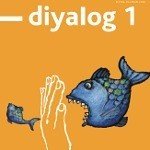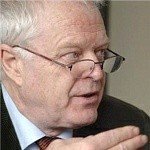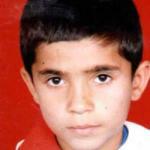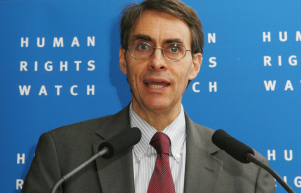Recent trends in human rights protection in Turkey have been retrograde. 2007 saw an intensification of speech-related prosecutions and convictions, controversial rulings by the judiciary in defiance of international human rights law, harassment of pro-Kurdish Democratic Society Party (DTP) officials and deputies, and a rise in reports of police brutality.
The state authorities’ intolerance of difference or dissenting opinion has created an environment in which there have been instances of violence against minority groups. In January 2007 Turkish-Armenian journalist and human rights defender Hrant Dink was murdered.
Armed clashes between the military and the Kurdistan Workers’ Party (PKK) rose in the lead-up to elections in July and intensified yet further in the second half of the year, with heavy loss of life; some attacks—such as a suspected PKK bombing in Ankara in May—have targeted civilians.
Prior to the general election, the Turkish military intervened directly in the political arena by voicing opposition to the ruling Justice and Development Party (AKP) government and by decisively influencing a constitutional court decision to block the presidential candidacy of the AKP’s Abdullah Gül. The AKP nevertheless won 47 percent of the vote in the early general election precipitated by the presidential crisis, and subsequently secured the election of Abdullah Gül as president. The AKP government embarked on plans for a new constitution to replace that put in place under the military regime in 1982.
Human Rights Defenders
The criminalization of speech remains a key obstacle to the protection of human rights in Turkey, contributing to an atmosphere of intolerance that assumed violent proportions in 2007. On January 19 the journalist and human rights defender Hrant Dink was shot dead outside his office. Dink came to public notoriety because he was repeatedly prosecuted for speech-related crimes and, in 2006, convicted for “publicly insulting Turkishness” under article 301 of the penal code. The trial of 12 suspects indicted for Dink’s murder, among them the 17-year-old gunman, began on July 2, but the authorities have to date failed to act on significant evidence of negligence or possible collusion by the security forces.
Other public figures associated with human rights advocacy also received death threats. Burdensome registration procedures and legal restrictions on associations continued. The LGBT organization Lambdaistanbul, for example, was prosecuted for having aims that were against “law and morality” and faced possible closure.
Freedom of Expression and Assembly
After its electoral victory in July, the new AKP government failed to take immediate steps to restart the stalled reform process by lifting restrictions on freedom of expression such as article 301, and elements of the legal establishment opposed to reform continued to prosecute and convict individuals for speech-related offences, as well as for staging unauthorized demonstrations.
Over 2007 hundreds of individuals, among them journalists, writers, publishers, academics, human rights defenders, and, above all, officials of Kurdish political parties and associations, were prosecuted. Some were convicted.
In October 2007 Arat Dink, son of Hrant Dink and editor of the bilingual Turkish-Armenian newspaper Agos (Furrow), and the newspaper’s owner Serkis Sarkopyan were given one-year suspended sentences for “insulting Turkishness” under article 301. They had reported a July 2006 Reuters interview with Hrant Dink in which he had referred to the “Armenian genocide.” No other newspaper that reported Hrant Dink’s words to Reuters has been prosecuted.
Officials of the pro-Kurdish Democratic Society Party (DTP)—which stood independent in the election and gained 22 seats—were repeatedly convicted for speech-related offences during the year. Some were detained for several months pending trial. The number of prosecutions was significantly higher than in previous years, lending credence to suggestions that concerted efforts were being made to block their political activity and restrict their freedom of assembly in an election year. In November the closure of the DTP was pending before the Constitutional Court. Officials of the Kurdish party HAK-PAR were also sentenced for using the Kurdish language in their political party activities; a Constitutional Court closure case is still pending against the party.
Torture, Ill-Treatment, and Killings by Security Forces
Ill-treatment appeared to be on the rise in 2007 and was regularly reported as occurring during arrest, outside places of official detention, and in the context of demonstrations, as well as in detention centers. This trend was further exacerbated by the passing in June of a new police law granting wide-ranging powers of stop and search. After the new law came into force, cases of police brutality were also reported in the context of the routine identity checks permitted in the new law. There were continuing reports of ill-treatment in prisons and, in January, conscientious objector Halil Savda was ill-treated at the Tekirdağ military barracks.
Fatal shootings of civilians by members of the security forces remain a serious concern. Although police typically state that the killing occurred because the individual has failed to obey a warning to stop, in some cases these may amount to extrajudicial executions. The fatal shooting of Bülent Karataş near Hozat, Tunceli, in September 2007, bore the hallmarks of a summary execution. His companion, Rıza Çiçek, who survived serious gunshot wounds, explained how he was shot by military personnel while on a beekeeping trip. Another suspected summary execution was that of the villager Ejder Demir, shot dead near Özalp, Van, in September. Nigerian asylum seeker Festus Okey died of gunshot wounds incurred while in police custody in Istanbul in August.
Attacks on Civilians
Suspected PKK bomb attacks targeting civilians have continued at intervals in 2007, including a suicide bombing in May in the shopping district of Ulus, Ankara, which resulted in eight deaths, and two bombings in Izmir in October, killing one man. In September a minibus was fired upon near a village in Beytüşşebap, Şırnak province, killing five civilians and seven village guards. As of this writing, the perpetrators had not been identified.
Impunity
Turkish courts are notoriously lenient towards members of the security forces who are charged with abuse or misconduct, contributing to impunity and the persistence of torture and the resort to lethal force. Many allegations of torture or killings in disputed circumstances never reach the courts and are not investigated. Some controversial court rulings in the first half of 2007 stand out.
In May the Court of Cassation quashed the 39-year sentences of two gendarmerie intelligence officers for the November 2005 bombing of a bookshop in the southeastern town of Şemdinli that resulted in one death. This bombing was widely condemned by human rights groups in Turkey as evidence of a resort to lawlessness in the name of counterterrorism. Controversially the court ruled that the crime had been committed in the course of a counterterrorism operation and that the defendants should be retried in a military court. The decision is on appeal.
In April a court in Eskişehir acquitted four police officers for the killing of Ahmet and Uğur Kaymaz, in November 2004 in the southeast town of Kızıltepe. The court ignored substantial forensic evidence demonstrating that the father and son may have been the victims of a summary execution. The case is on appeal.
There was no progress in the investigation into the widespread allegations of police torture following arrests during violent protests in March 2006 in Diyarbakır, into the deaths of 10 demonstrators (eight shot dead) during the protests.
Key International Actors
The European Union (EU) remained the most important international actor in fostering respect for human rights in Turkey. However, the December 2006 EU summit decision to partially freeze membership negotiations because of Turkey’s relations with Cyprus contributed to the perception in Turkey that EU member states were reneging on their commitment to Turkey’s candidacy.
After the election in France of President Nicolas Sarkozy in 2007, who has repeatedly stated his opposition to Turkey joining the EU, in June France used its veto power to block two minor chapters of the accession negotiations. In its annual progress report, published in November, the European Commission commented on the failure to advance reforms in 2007, continuing restrictions on free speech, the interference of the military in political affairs, the need to strengthen the independence of the judiciary, and the failure to further minority rights.
As of this writing, the European Court of Human Rights has issued 242 judgments against Turkey in 2007 for torture, unfair trial, extrajudicial execution, and other violations. In an October judgment that may have implications for the draft constitution, the court found that the failure to grant an Alevi schoolgirl exemption from constitutionally enshrined compulsory religious education classes focused on Sunni Islam constituted a violation of the right to education (Hasan and Eylem Zengin v. Turkey).
In a controversial decision in January the court ruled that the existence of the 10 percent electoral threshold, which has been argued to deprive in particular pro-Kurdish parties of political representation in parliament, did not violate the right of the people to freely express their opinion of the choice of the legislature (article 3 of protocol 1 of the convention). Two judges dissented, pointing to the fact that the Parliamentary Assembly of the Council of Europe had in 2004 urged Turkey to lower the threshold, and that the threshold was twice as high as the European average (see Yumuk and Sadak v. Turkey). In November the case was heard by the Grand Chamber of the European Court and judgment is awaited. (HRW/AG)







